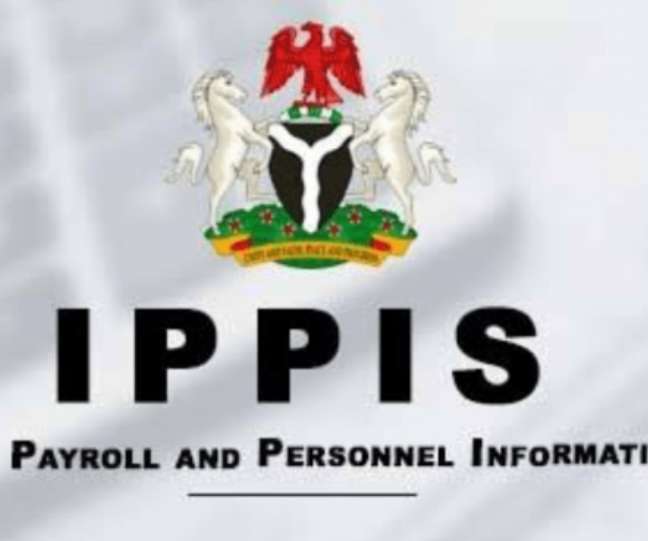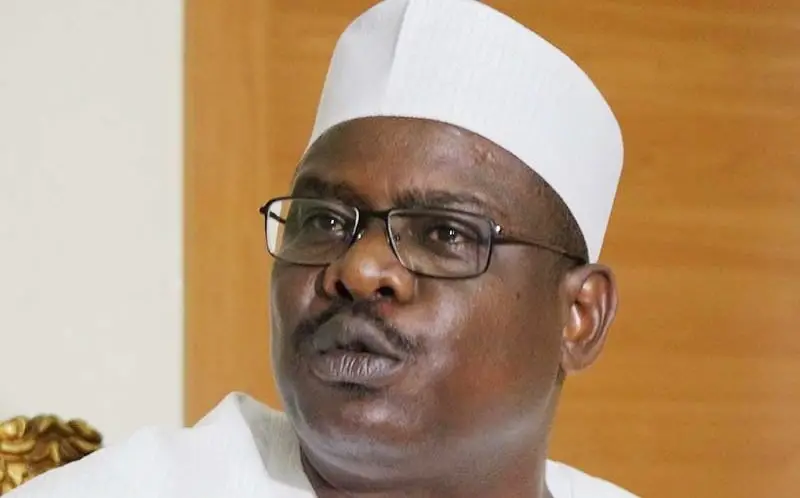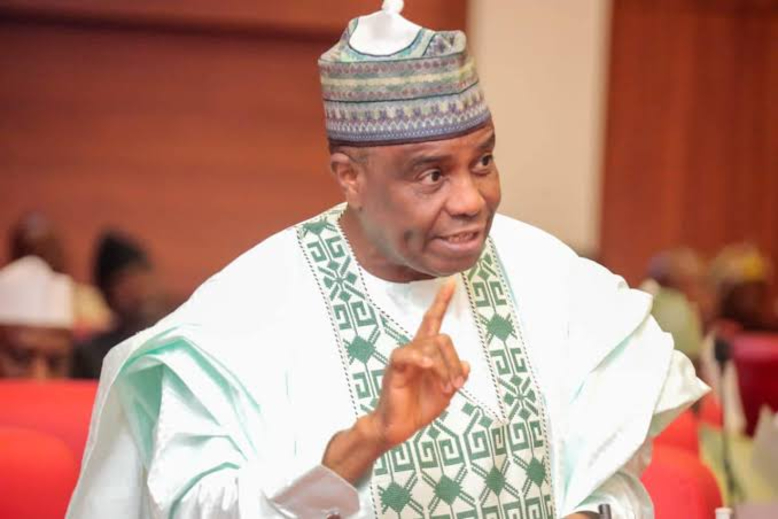News
JUST IN: FG Exempts Universities, Polytechnics, Others From IPPIS

The Federal Government on Wednesday approved the exemption of universities, polytechnics, colleges of education and other tertiary institutions of learning from the Integrated Payroll and Personnel Information System.
It said, henceforth, remunerations to staff members of these institutions would no longer flow through the platform.
The Minister of the Information and National Orientation, Mohammed Idris, disclosed this to State House Correspondents after this week’s Federal Executive Council meeting at the State House, Abuja.
The FG reasoned that the IPPIS does not afford tertiary institutions the freedom to run their affairs, Idris said.
READ ALSO: JUST IN: Fubara Presents 2024 Budget To Five Rivers Lawmakers
He explained, “Today, the universities and other tertiary institutions have gotten a very big relief from the integrated personnel payroll and information system. You will recall that the university authorities and others have been clamouring for exempting the universities and other tertiary institutions from this system.
“Today, the Council has graciously approved that. What that means is that going forward, the universities, as the Honorable Minister of Education has said and other tertiary institutions, the polytechnics and colleges of education will be taken off the IPPIS.
“What that means in simple language is that the university authorities and other tertiary institutions will now pay their personnel from their own end instead of relying on the IPPIS.”
The Minister of Education, Prof. Tahir Mamman, who explained the rationale for the Council’s decision, said the goal was to allow for the efficient running of public educational institutions nationwide.
READ ALSO: JUST IN: Fubara Presents 2024 Budget To Five Rivers Lawmakers
He argued that Wednesday’s move is not connected to the integrity of IPPIS, the University Transparency and Accountability Solution, or other similar systems advocated by various bodies.
Mamman said, “Simply, the president and the Council are just concerned about the efficiency of management of the universities, and so it has nothing to do with integrity or platform options.
“The president cannot understand why Vice Chancellors should be leaving their duty post and run to Abuja to get staff enlisted on IPPIS when they get recruited.
“The basic concern is that universities are governed by laws. And those laws give them autonomy in certain respects and most respects and the IPPIS has sort of eroded that autonomy granted universities is accordance with their act.”
READ ALSO: Rivers Assembly Declares Seats Of 27 Defected Lawmakers Vacant
In October 2006, the FG introduced the IPPIS as one of its reform initiatives for the effective storage of personnel records, saying the move would improve transparency and accountability.
IPPIS, which was expanded to cover all ministries, departments and agencies that draw personnel costs from the Consolidated Revenue Fund, has been touted by the government as a means of saving billions of Naira and improving transparency in salary payments.
However, the Academic Staff Union of Universities, the umbrella body for lecturers in Nigerian universities, resisted the implementation of IPPIS within universities, arguing that it undermines university autonomy and does not accommodate the unique nature of academic work.
ASUU has instead proposed an alternative system called the University Transparency and Accountability Solution, which they believe better addresses the peculiarities of the university system, such as sabbatical leave, adjunct engagements and part-time contracts.
READ ALSO: Rivers Lawmakers’ Defection Violates APC Constitution – Party Chieftain
ASUU and other academic unions argue that IPPIS centralisation impedes the governing councils’ ability to effectively manage personnel and payroll, affecting strategic planning and the autonomy of universities.
This has led to tensions and a protracted standoff, with ASUU continuing to push for the adoption of UTAS over IPPIS, which they see as a foreign-imposed system unsuitable for the Nigerian tertiary education sector.
Despite the government’s attempts to enforce IPPIS, ASUU has held firm, leading to strikes and disruptions in academic activities, including an eight-month hiatus in educational activities that ended in 2022.
More details to come…
News
New Tax Laws: Suspend January 2026 Implementation — Senator Ndume Tells Tinubu

Former Senate Leader, Ali Ndume has appealed to President Bola Ahmed Tinubu to suspend the January 1, 2026, implementation of the country’s new tax laws amid growing controversy.
The federal lawmaker made the appeal in a statement he issued on Wednesday in Abuja.
This comes as the Nigerian Bar Association demanded the suspension of the implementation.
Recall that a member of the House of Representatives, Abdussamad Dasuki, had last week called the Parliament’s attention to alleged alteration to the tax laws.
READ ALSO:FIRS Confirms NIN As Tax ID
Chairman of the Presidential Fiscal Policy and Tax Reforms Committee, Taiwo Oyedele, in an interview on Arise Television on Wednesday, called for calm over claims of alterations in tax laws and urged Nigerians to allow lawmakers to complete their investigation before drawing conclusions.
Speaking on the ongoing controversy about the tax laws, Ndume noted that proceeding with the implementation without getting to the root of the alleged forgery will create a legitimacy challenge for the tax laws.
His statement read, “With the controversy surrounding it, the President should constitute a team to verify the veracity of the claim and act accordingly.
“As the responsive leader that he has always been, he should look at it to find out if the copy that was signed and the claim of alterations are genuine so that he will do the needful to bring the controversy to rest.
READ ALSO:US Threatens To Sanction Countries That Vote For Shipping Carbon Tax
“If not, the controversy will continue.” That is to say, the tax law will not be implemented, because you can’t build on nothing.
“So, Mr. President should suspend the implementation until the issues are resolved because so many civil society organizations, the Arewa Community, and the Nigerian Bar Association are saying that he should withdraw the tax law and investigate the allegation of forgery.”
“Therefore, Mr President should get to the root of the allegation of forgery. The small committee that will be set up should look into it while the House of Representatives does its own.”
News
Tambuwal Engages Security Agencies As US Airstrikes Hit Own LG In Sokoto

Senator Aminu Waziri Tambuwal, representing Sokoto South, has called on residents of Sokoto State to remain calm following reports of United States airstrikes targeting ISIS-linked terrorists on Christmas Day.
In a statement posted on his personal X account, the former Sokoto State governor said he was aware of reports concerning the airstrikes, which marked a direct US military action in Nigeria based on intelligence about ISWAP threats, and urged citizens to remain law-abiding while authorities clarify the situation.
“I have noted the reports concerning an airstrike carried out as part of ongoing counterterrorism efforts through cooperation between the federal government of Nigeria and the United States,” Tambuwal said. “I urge our communities to remain calm and law abiding as relevant authorities clarify the circumstances surrounding the operation.”
READ ALSO:US Dept Of War Shares Video Of Air Strikes In Nigeria
Tambuwal assured constituents that he was engaging with relevant security agencies to obtain full details of the operation and to ensure that necessary things were in place to protect civilians.
“I wish to assure the people of Sokoto South that I am in active talks with relevant security authorities to obtain full details and ensure that all necessary safeguards are upheld,” he added.
The senator emphasised that counterterrorism operations were aimed strictly at criminal and terrorist elements threatening public safety, not innocent civilians who are often victims of insecurity. He stressed that the protection of civilian lives must remain central to all legitimate security actions.
He further called on community leaders, traditional institutions and residents to work closely with security agencies by sharing credible intelligence and resisting misinformation capable of causing fear or heightening tension.
News
Rep Moore Confirms 12 Tomahawk Missiles Launched In Sokoto

No fewer than 12 Tomahawk missiles were on December 25 launched against terrorists in Sokoto State by the United States military.
Rep Riley M. Moore, the lawmaker representing Virginia’s Second District in the Congress, confirmed this in an interview with Fox News.
The US military operated in Sokoto State on Christmas night, bombing terrorists killing innocent people in parts of Nigeria.
READ ALSO:Trump’s Airstrikes: Halt Military Cooperation With US Immediately – Sheikh Gumi Tells Tinubu Govt
Some security analysts claimed on Friday that the operation was unsuccessful and had no significant impacts on the targeted terrorists.
According to them, the airstrikes landed in safe places including farms where there was no history of terrorists’ hideout.
But details began to emerge on Friday night, indicating that several terrorists were killed during the joint operations between the US army and it’s Nigerian counterpart.
READ ALSO:Nigerian Ringleader Of Nationwide Bank Fraud, Money Laundering Jailed In US, Says FBI
Moore said: “This year, thanks to President Trump, Radical Islamic Terrorists were on the receiving end of 12 Tomahawk missiles as a present.
“The successful strikes on ISIS, in coordination with the Nigerian government, is just the first step to secure the country and end the slaughter of our brothers and sisters in Christ”.
DAILY POST reports that residents of Sokoto State have been panicking since the US military operation.

 News5 days ago
News5 days agoPHOTOS: New Era In Furupagha-Ebijaw As Okpururu 1 Receives Staff Of Office

 News4 days ago
News4 days agoUBTH CMD Marks 120 Days In Office, Expresses Commitment To Providing Conducive Working Environment

 News5 days ago
News5 days agoOPINION: Gumi And His Terrorists

 News4 days ago
News4 days agoFIRS Confirms NIN As Tax ID

 News5 days ago
News5 days agoFG Declares Public Holidays For Christmas, New Year Celebrations

 News5 days ago
News5 days agoOPINION: Christmas And A Motherless Child

 Metro4 days ago
Metro4 days agoFintiri Pardons Man Sentenced To Death For ‘Killing Herdsman In Self-defence’, Others

 News3 days ago
News3 days agoJUST IN: Kano Lawmaker, Sarki Aliyu Daneji, Dies Hours After Colleague’s Passing

 News4 days ago
News4 days agoOPINION: My Man Of The Season

 News4 days ago
News4 days agoKWAM 1 Withdraws From Awujale Race, Ends Court Challenge






























